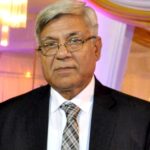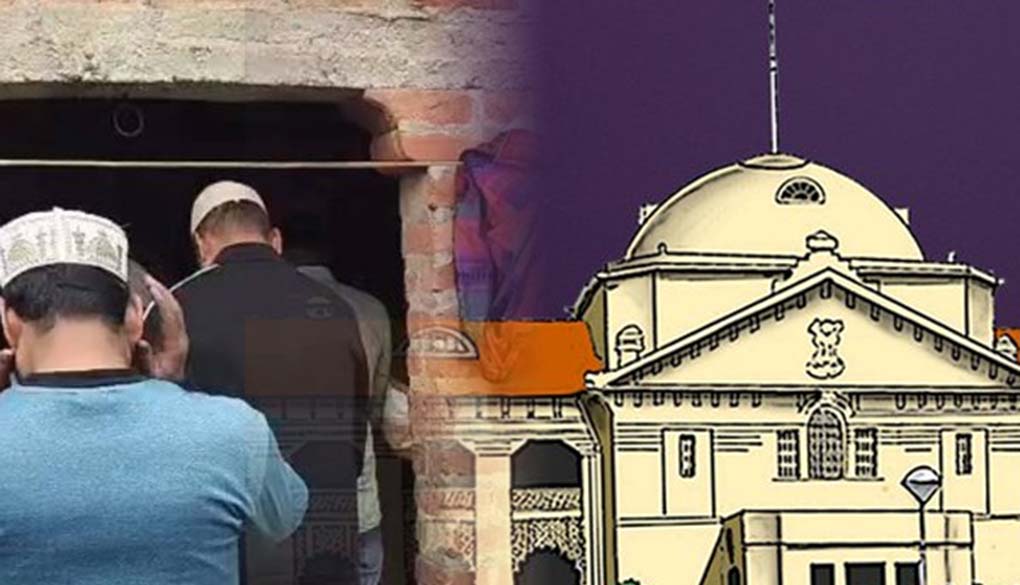
Najmuddin A Farooqi
The inclusion of the word secular in the Indian Constitution through the 42nd Amendment in 1976 marked a pivotal moment in the nation’s democratic evolution. Intended to reaffirm the commitment to equal treatment of all religions, the term’s meaning and implementation have remained contentious. Rooted in the Nehruvian ideal of “equal respect for all faiths,” Indian secularism was meant to foster a neutral state approach to religion.
However, over time, its application particularly by successive Congress-led governments has drawn sustained criticism, especially from segments of the Hindu community.Critics argue that the version of secularism practiced by the Congress often amounted to minority appeasement, inadvertently alienating the majority population.
This perception, though dismissed or downplayed by political elites, gained traction at the grassroots level. As a result, growing discontent within the Hindu community known historically for its emphasis on knowledge, patience, and pragmatism began to manifest politically.Over the decades, many national and regional parties failed to recognize how their approach to secularism was being interpreted by the broader public.
This disconnect likely played a significant role in their diminishing electoral appeal, culminating in repeated defeats in the last three general elections. A large section of the Hindu electorate ultimately rallied behind a political alternative that promised to prioritize national interests while addressing long-standing grievances.Since the Bharatiya Janata Party rose to power in 2014 with a strong mandate, India has experienced a marked ideological shift. What began as subtle attempts to reinterpret secularism has evolved into a more explicit redefinition under the banner of “cultural nationalism.” The BJP, positioning itself as a guardian of Sanatan Dharma, has framed its governance as a corrective to years of perceived neglect of Hindu interests. In doing so, it has reimagined secularism in alignment with a majoritarian worldview, raising concerns about the erosion of India’s pluralistic foundations.
The recent electoral mandate in favor of the BJP reflects this ideological recalibration. Many citizens have placed their trust in a government they believe will govern inclusively protecting the interests of all communities while restoring pride among the majority. For this trust to endure, the government must deliver on key promises through corruption free governance, robust economic policies, and efficient program implementation that uplifts all sections of society.However, the country faces significant challenges that demand urgent and strategic attention.
Economically, India is grappling with declining demand, a depreciating rupee, rising unemployment, and persistent inflation all indicators of strain on the system. Law and order issues persist in several regions, further complicating the developmental narrative.
A particularly troubling example is the humanitarian crisis stemming from the implementation of the National Register of Citizens (NRC) in Assam. Thousands of individuals many of whom are believed to be legitimate Indian citizens were excluded from the list due to lack of documentation, often lost during frequent displacements caused by floods or communal unrest. This has led to deep anxiety and social instability.
Remarkably, even BJP leaders and RSS members in Assam have expressed alarm over the exclusion of a significant number of Hindus from the NRC.Though the government insists the NRC is not linked to any other initiative, widespread public fear fueled in part by social media has blurred these distinctions. Concerns have emerged that a nationwide rollout of the NRC could replicate the hardships witnessed in Assam. Given the enormous financial cost over ₹1,500 crore for Assam alone questions regarding feasibility and intent remain unresolved. Clear and transparent communication from the government could go a long way in easing public apprehension.
Another key dimension in this evolving socio-political landscape is the role of the Muslim community. Historical legacies such as the Partition, real or perceived political appeasement and contemporary anxieties over extremism have shaped public opinion some of it grounded in reality, much of it in misconception. Nonetheless, the community finds itself at a critical juncture today.
For a more inclusive and integrated national future, several proactive steps are essential:
1. Introspection and Integration: The Muslim community must engage more deeply with the national mainstream and embrace broader civic values.
2. Constructive Dialogue: Polarizing rhetoric whether from fringe elements or political leaders must not be allowed to damage Hindu-Muslim relations.
3. Focus on Development: Emphasis on education, employment, entrepreneurship, and active participation in public life is vital for long-term empowerment.
4. Internal Reform: Socio-cultural reforms from within, led by intellectuals, reformers, and religious leaders, can help align the community more closely with national aspirations.India’s enduring strength lies in its unity amid diversity.
For secularism to thrive in the modern era, it must be perceived as just and impartial by all communities. Simultaneously, the path to sustainable national development must be inclusive, ensuring that every citizen feels empowered to contribute to the nation’s progress.
The responsibility for achieving this balance lies not only with the government, which must frame and implement fair and inclusive policies, but also with civil society. Citizens must rise above sectarian divides and work collectively toward a shared vision of India one that upholds democratic values, respects cultural pluralism, and nurtures a common national identity.
By Najmuddin A Farooqi.



